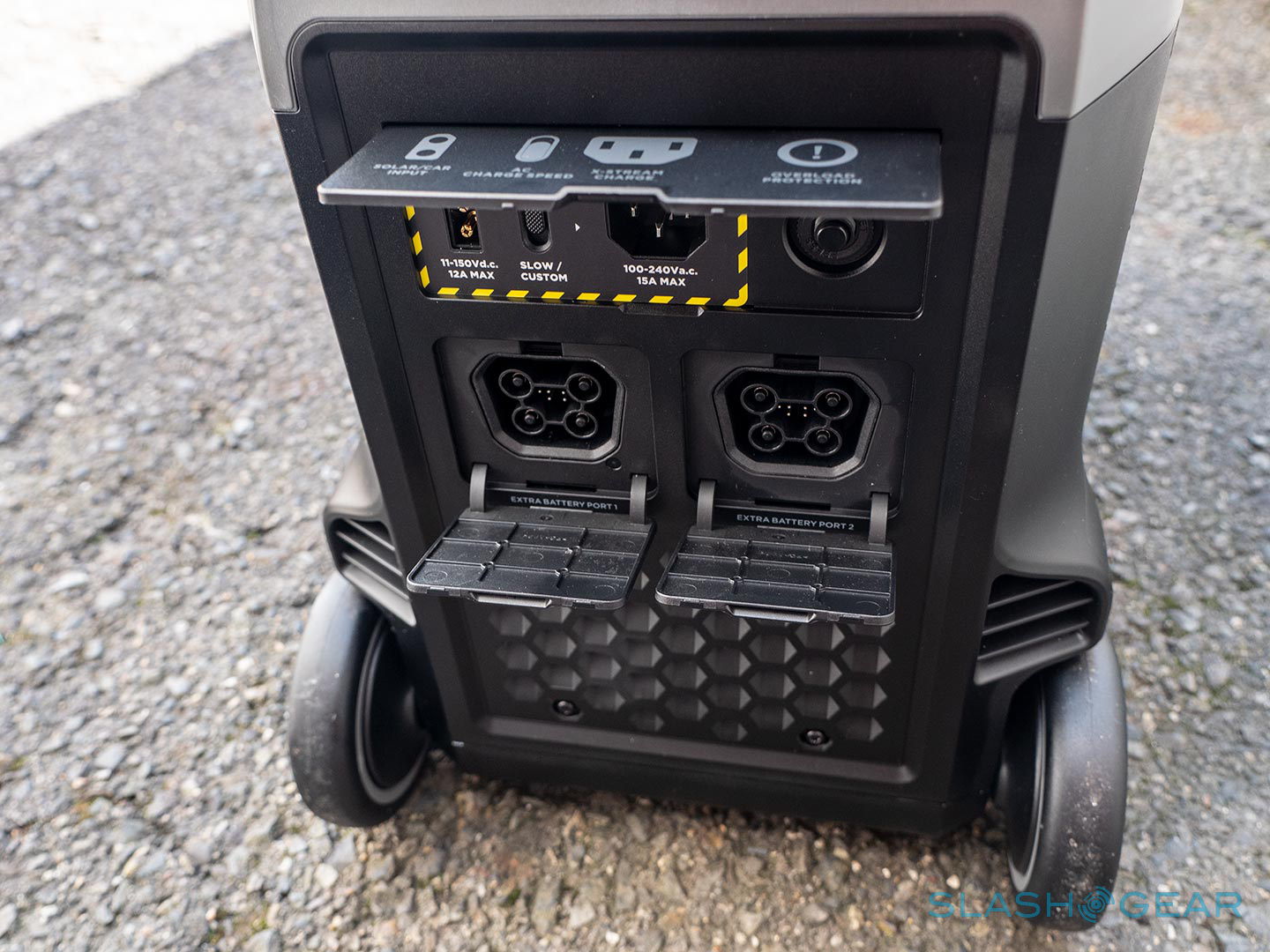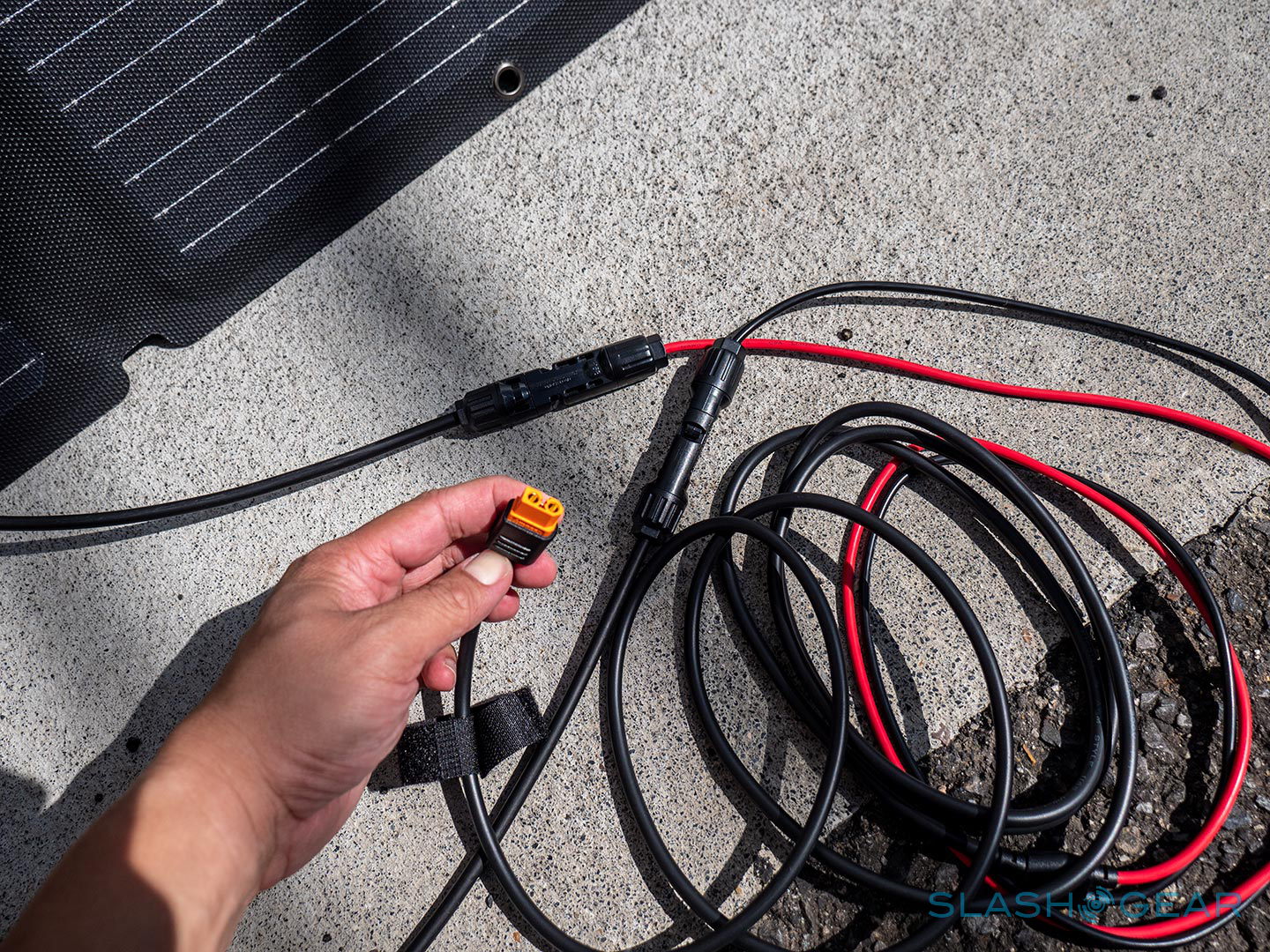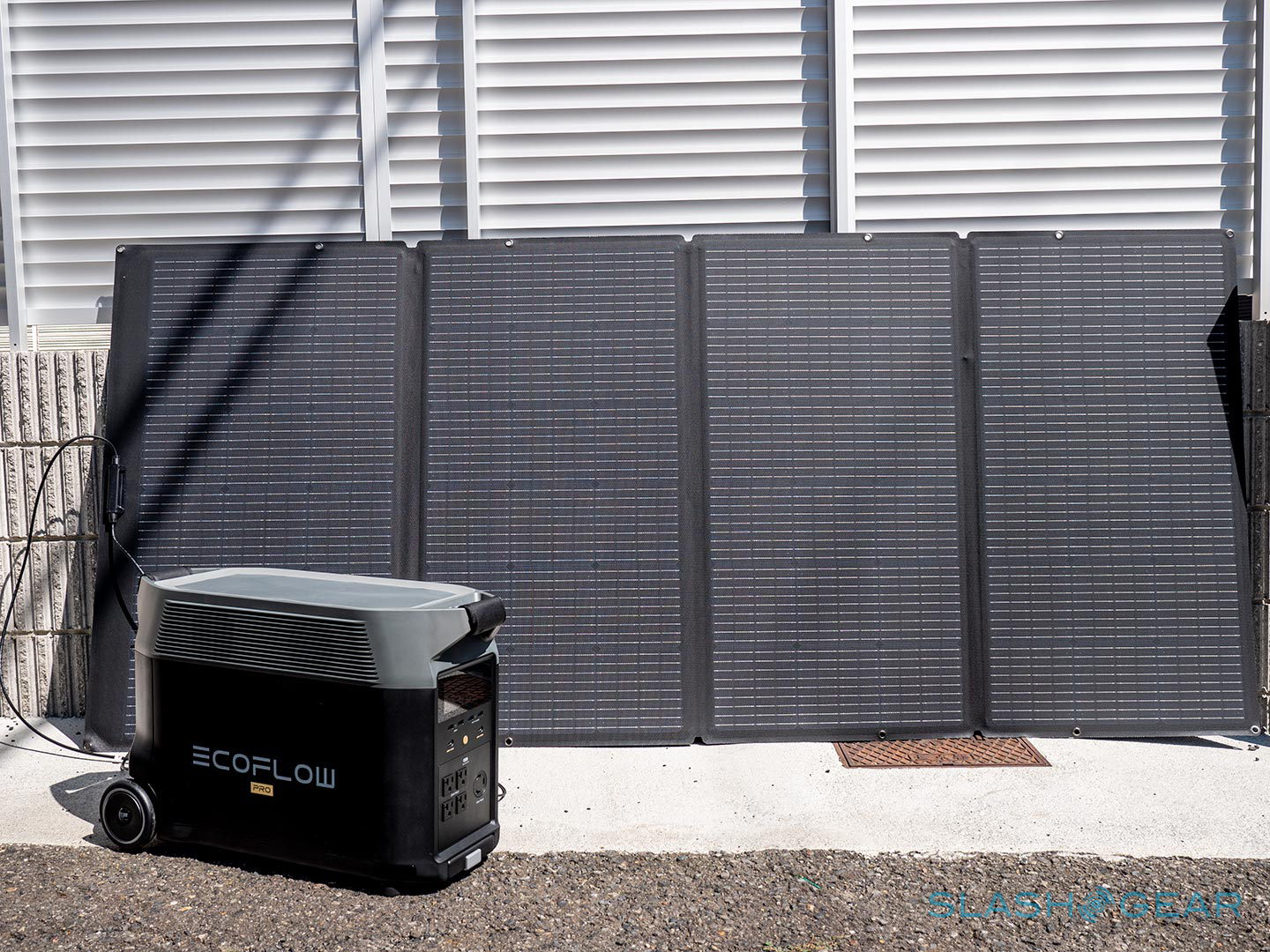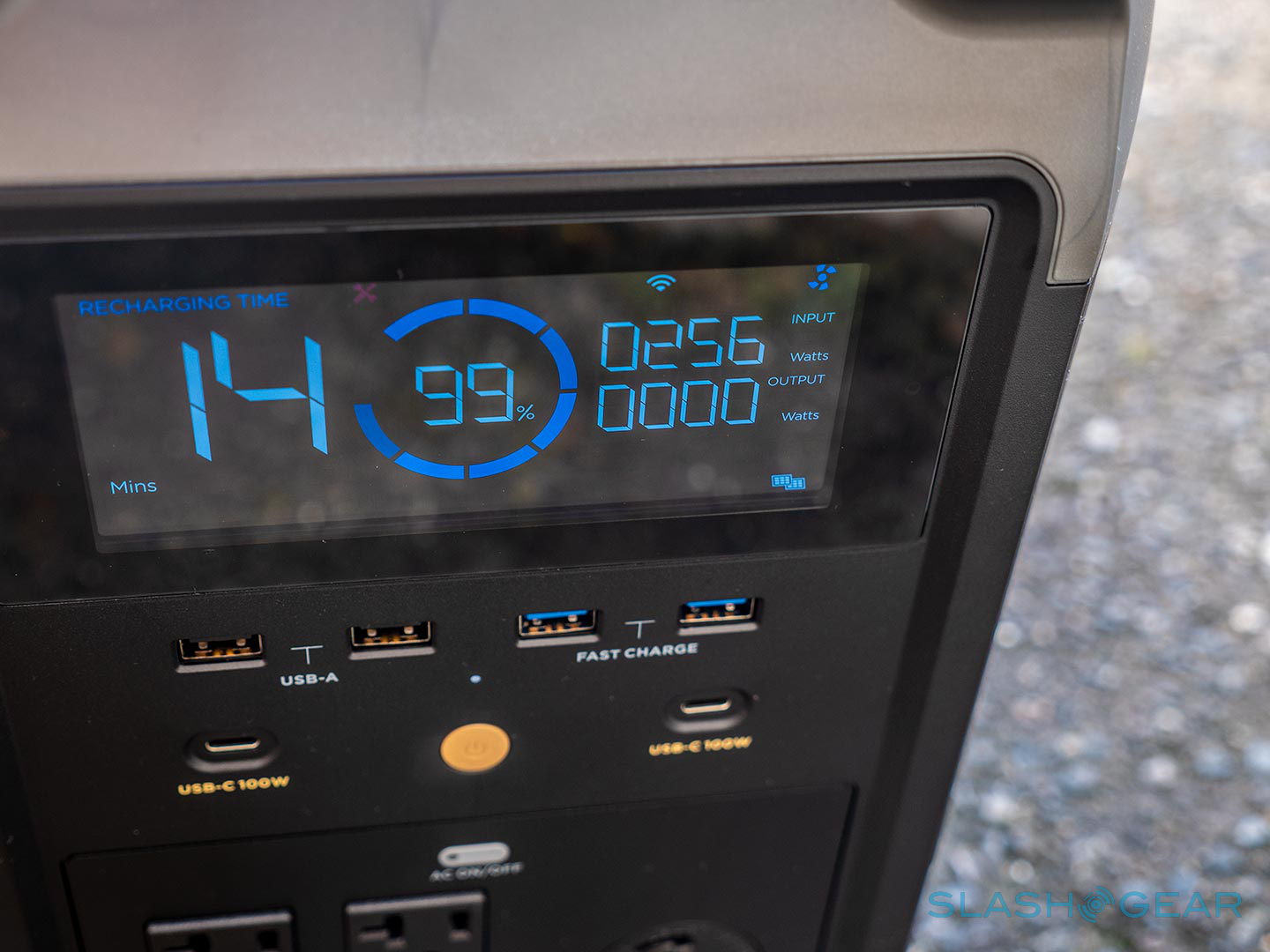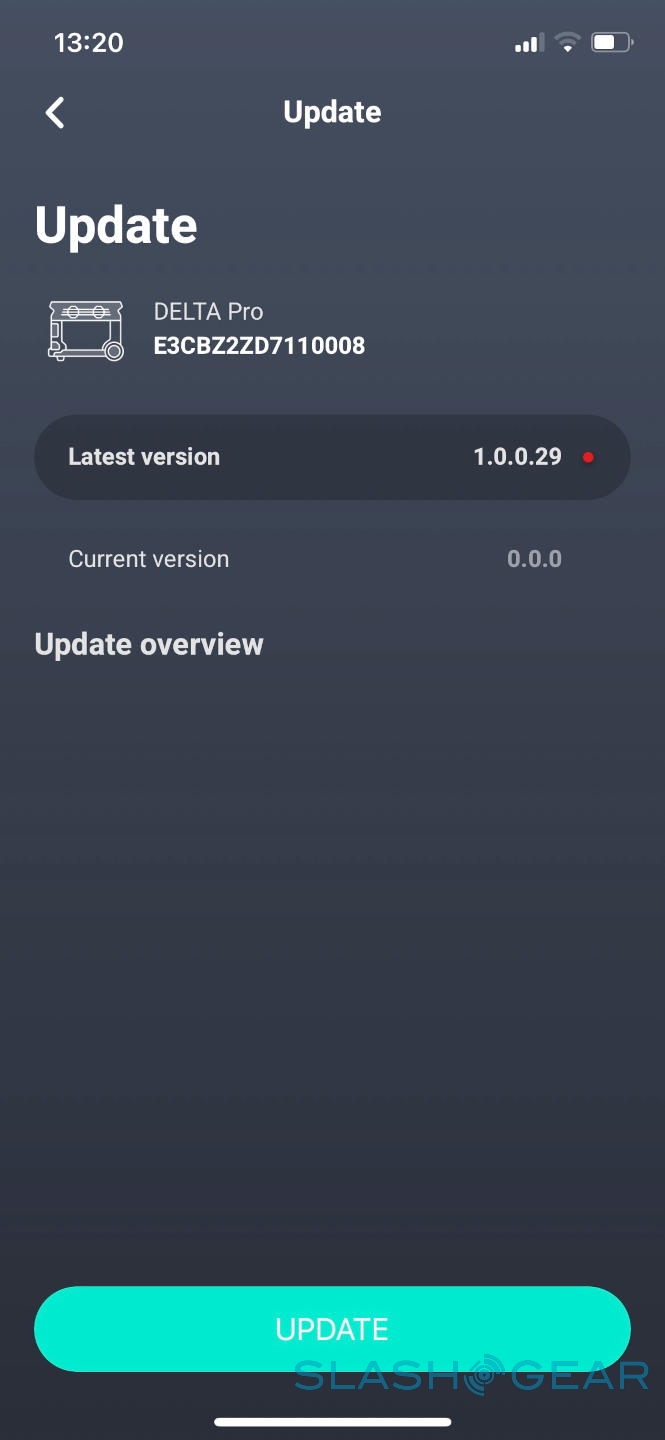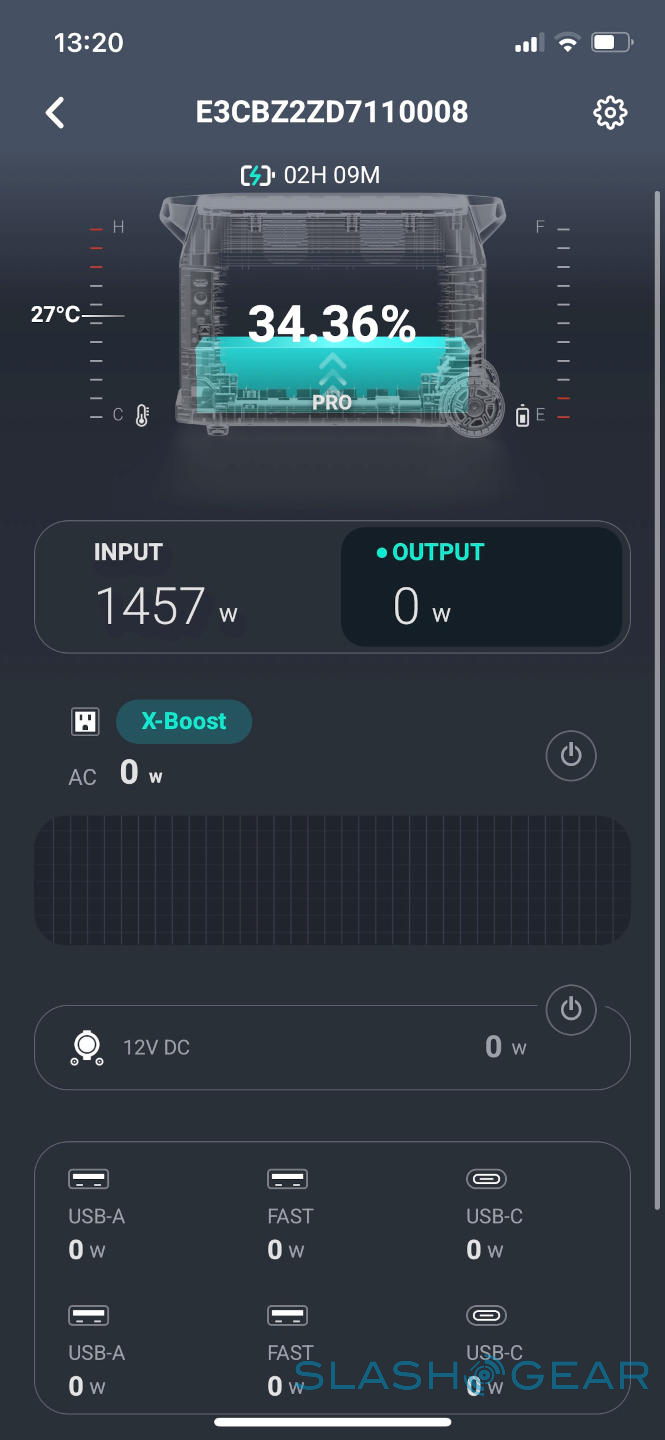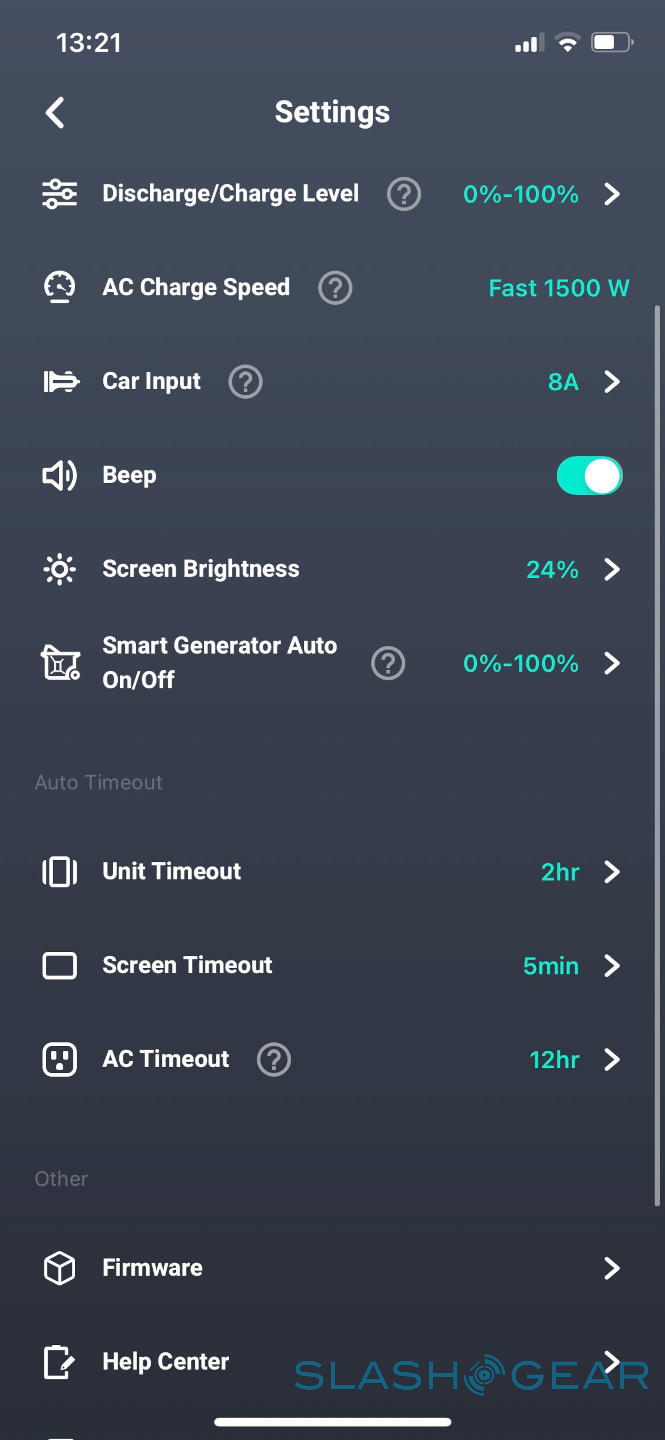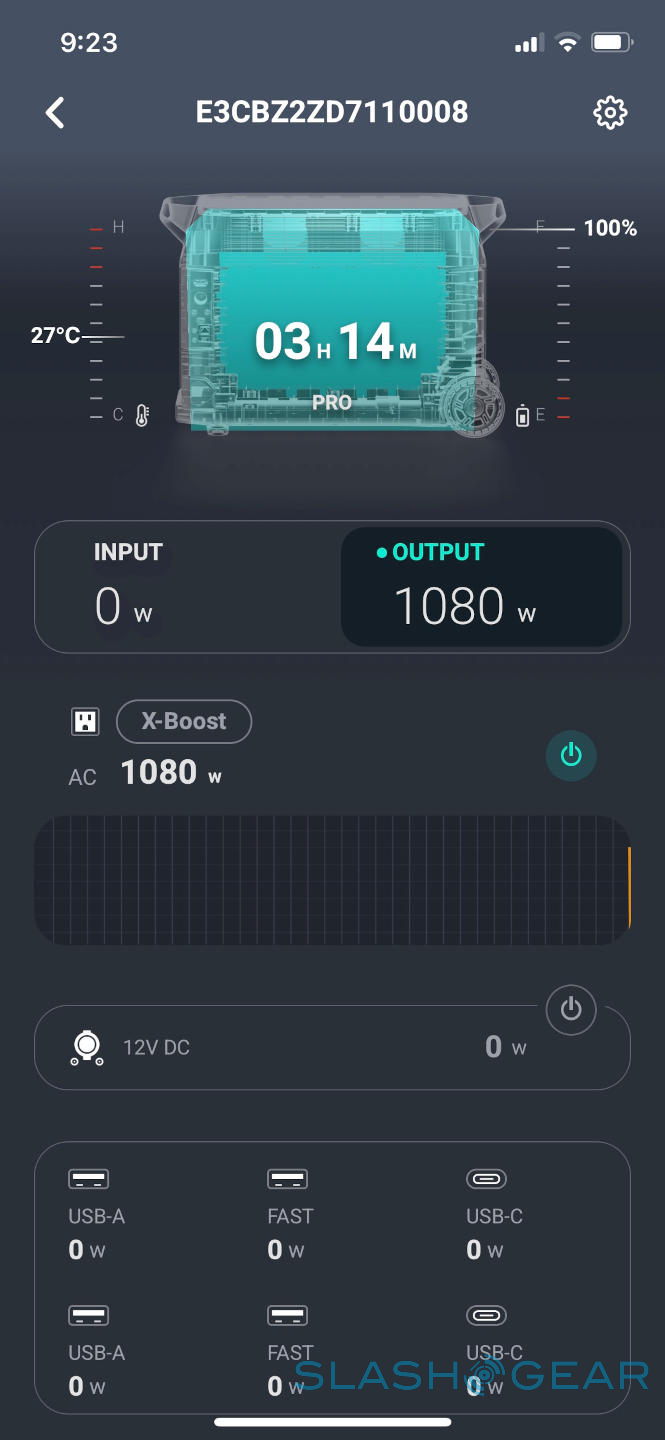EcoFlow Delta Pro Power Station Review
- Excellent and efficient 3600W battery
- Multiple output options, including two 100W USB-C ports
- Multi-Charge system combines different sources
- Modular system can triple the battery capacity
- Large and bulky
- A bit expensive
Recent weather disasters and natural calamities have made the need for emergency power even more apparent these days. While fuel generators have been the go-to solution for such situations, they are no longer viable options in terms of safety and reliability. Portable power generators are popping up left and right but rarely do these devices have enough power to truly run your home in an emergency. That's where EcoFlow's new Delta Pro portable power station comes in, stretching what "portable" means while also expanding what power stations are often expected to do.
Design
As an important disclaimer, EcoFlow informs us that the review unit they sent us is practically a prototype. While it represents the design of the power station as well as its core functionality, the final retail unit will bear improved build quality and capacities. That said, even this prototype already has us impressed and expecting a great deal from the refined units.
There's no getting around the fact that the EcoFlow Delta Pro is huge and heavy, the latter at a whopping 45kg/99lbs. You definitely won't be carrying this by yourself, but the included handle covers try to at least take the pain away when you need to lift it up together with a friend. The Delta Pro is instead designed to be rolled with an extendable handle that lets you lift up one side to pull it around with the two wheels on its back.
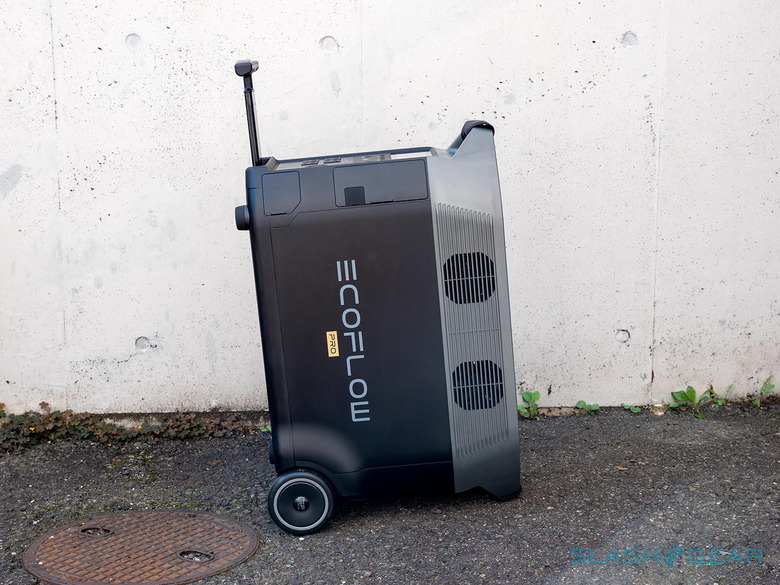
At first glance, all the standard ports are immediately visible on the front of the Delta Pro, but that belies the versatility of this mobile power station. Flaps on the back reveal the various charging and connectivity options, while two flaps to the right of the front panel hide output ports and an innovative Infinity AC port that we'll get to later. From the number of ports available to their variety, there is no shortage of ways to power other devices as well as ways to charge the Delta Pro itself.
The overall design of this latest EcoFlow masterpiece resembles a giant cooler on wheels, one whose body is made of sturdy plastic all around. The top of the power station has a marble-like appearance that we initially mistook for cracks incurred during shipping. Fortunately, "it's a feature, not a bug." The front also sports a color LED screen that provides vital information, like the power being drawn out of or into the Delta Pro, as well as the estimated time remaining before it fully discharges or recharges.
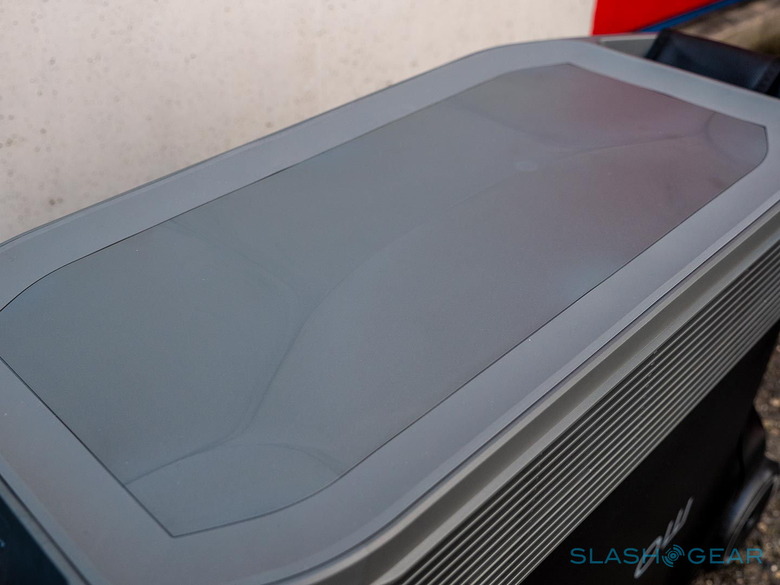
Battery and Output
The EcoFlow Delta Pro isn't exactly a looker, but it isn't meant to be an art piece anyway. Its real claim to fame is, of course, its large 3600Wh battery that will put many power stations, including those of similar large sizes, to shame. Add to that the fact that you can actually push it to output 4500W of power with X-Boost, and you're almost set to power your entire home, especially if you have two of these available.
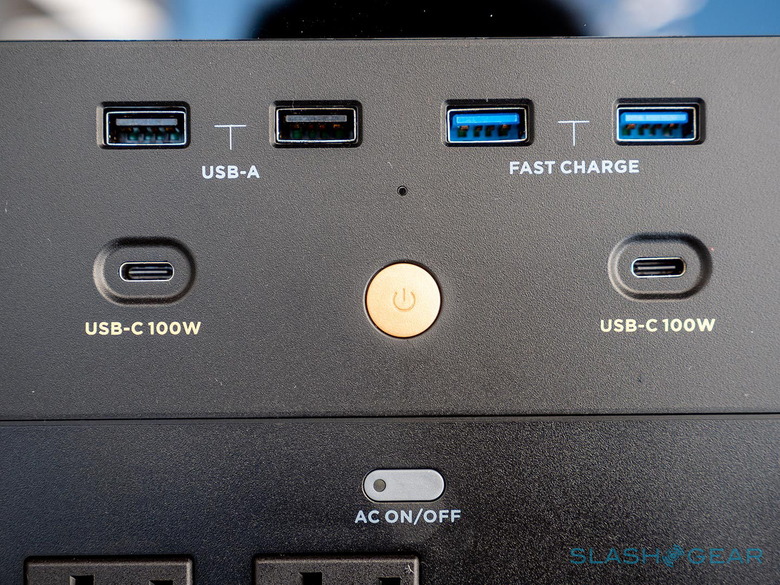
Those large LiFePo4 batteries, some of the safest and longest-lasting in the consumer market, will be for naught if owners can't take advantage of all that power. Fortunately, the Delta Pro has plenty of ports to spare, and you can even charge at least two MacBook Pros simultaneously. Right off the bat, you've got four USB-A ports, two of which support Fast Charge output, two 100W USB-C ports, four 20A AC outlets, and one 30A AC socket on the front.
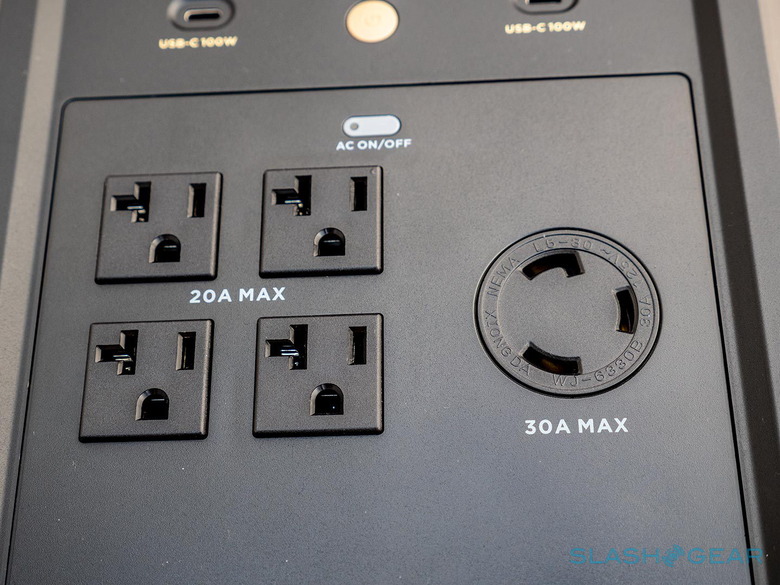
One of the panels to the side, however, provides more options, including an Anderson Port for RVs, a car outlet, typical barrel-type DC ports, and some connectivity options for an optional remote control and Wi-Fi and Bluetooth buttons. The bottom flap houses EcoFlow's Infinity Port that can be used for both AC output as well as input from an EV charger.
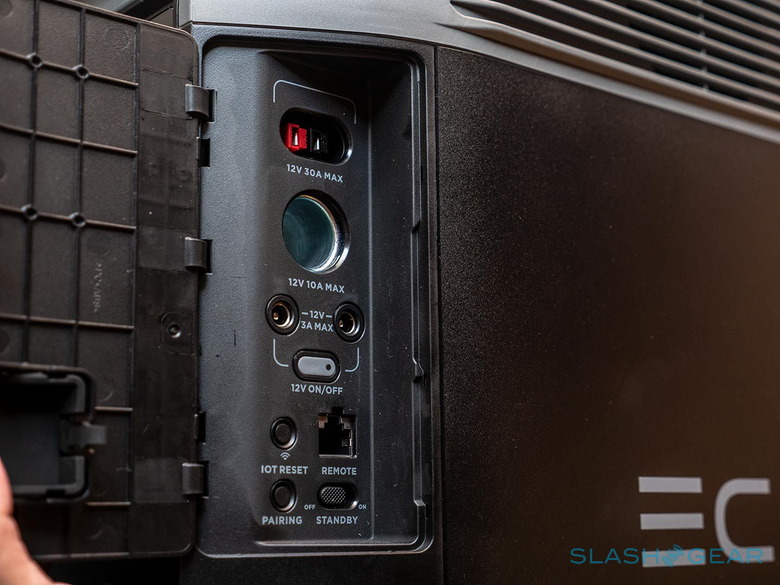
The 3.6kWh battery is already plenty to power many household appliances in an emergency, including heavy hitters like hair driers, microwaves, freezers. The Delta Pro uses a pure sine wave inverter that has a high power efficiency, meaning you don't waste any power that would translate into shorter running times. We were definitely able to confirm EcoFlow's advertised figures and, as mentioned, even push the output further with X-Boost via the mobile app.
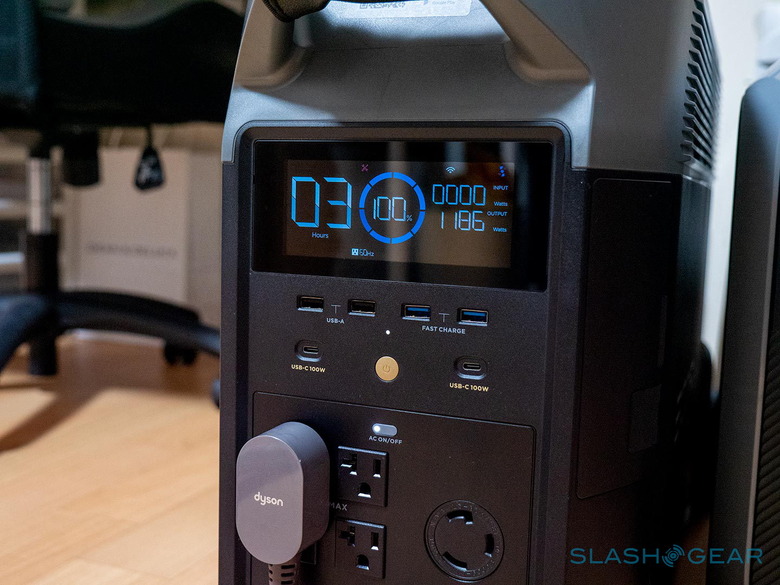
If that weren't enough, however, you can connect to Delta Pros for a total of 7200W 30A of power or have two Delta Pro Smart Extra Batteries to one power station for a whopping 10.8kWh. Given the right accessories and setup, you can instantly power the entire house off the grid during an outage and have the peace of mind that you won't be putting yourself and your family in danger like you would with traditional fuel generators.
Charging and Input
Most of the time, the charging narrative of portable power stations is simple and direct. The EcoFlow Delta Pro, however, offers more flexibility and power in that regard but also complicates things a bit. Fortunately, you don't have to bother with the other charging options and just plug the unit into a wall socket for 1800W (US) or 2900W (EU) of power for two to three hours.
Portable power stations, however, also try to advertise their eco-friendliness by supporting solar charging options. EcoFlow says that, after an upgrade, the final version of the Delta Pro will be able to support a maximum of 1600W of solar power input at 11-150V 15A. It is no coincidence that the company also has a 400W solar panel that can be chained together to deliver the needed wattage. EcoFlow provided us with one such panel for testing, and we were very impressed by its efficiency, delivering around 256W under a shadow.
One rather unique innovation in the charging department is the Infinity AC port that actually lets you juice up the Delta Pro from an EV charging station, some of which are even offered for free at certain locations. Again, the final capacity differs slightly from the advertised specs, and the Delta Pro will be able to draw as much as 3400W of power in this mode. That alone is already commendable, but EcoFlow raises the bar by allowing Solar, EV or AC power, and even smart generators to work simultaneously and deliver up to 6500W of power to charge the unit, provided you have a Delta Pro Extra Smart Battery connected.
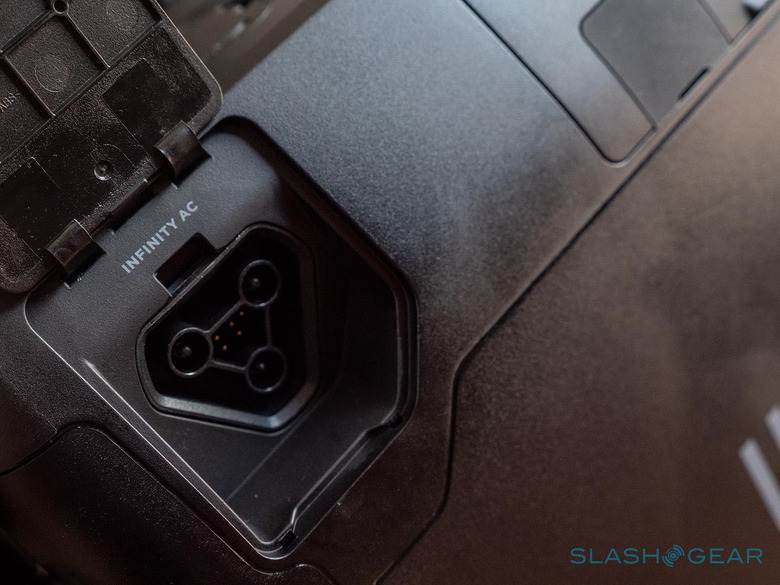
Charing portable power stations via AC isn't always as simple as it sounds, especially when throwing in other appliances connected to the same line. For users' peace of mind, EcoFlow throws in a Charge Speed switch so you can control how much it draws. No more accidentally tripping circuit breakers just because you didn't know what else was connected to that extension cord.
Smart Home Ecosystem
The Delta Pro's LED screen provides the basic information you'll want at a glance, but it's pretty much limited when it comes to giving insight into your power usage as well as controlling the power station itself. EcoFlow provides its own mobile app that not only lets you toggle features like X-Boost but also gives more details on your energy usage, including an analysis per port.
The EcoFlow app lets you remotely manage all the Delta Pros settings, which comes in handy when you're trying to orchestrate a smart home system. Together with the optional EcoFlow Smart Home Panel, you can semi-permanently station two Delta Pros, perhaps with an extra battery each, to automatically switch to their emergency power during an outage. You can even set limits and priorities to devices connected to the power station, so you don't have to worry about manually fiddling with those settings when the time comes.
Wrap-up
The EcoFlow Delta Pro is large, heavy, and, to be honest, a tad pricey, but those are the costs you might be willing to pay for all the flexibility and literal power it offers.
Its modular system, the plethora of output and input options, and smart home features truly make it a one-of-a-kind portable power station that doesn't apologize for its large size. EcoFlow definitely delivers on its promises, which all the more makes that $2,699 Kickstarter price worth every penny.

